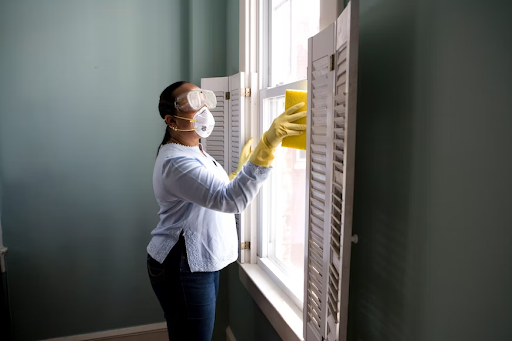How to Identify and Prevent Rodent Infestations in Your home
With spring on the way, it’s time to get a head start on preventing mouse and rat infestations in your home. Rodents can be extremely dangerous to humans. Many diseases can be transmitted to you and your family by mice and rats, and they have the ability to damage your home from the inside out.
Most homeowners are familiar with the uneasy feeling that comes with discovering mice or other rodents within your home. A mouse sighting can startle and scare even the calmest homeowners, whether it happens in the dining room, attic, basement, or kitchen. Nevertheless, these common pests are crafty creatures that may slip through even the slightest openings or crevices to enter a building or home. They just need very little space to enter. Mice can easily squeeze through a nickel-sized opening.

Unless there is a serious infestation look for Arkansas Pest Control, you may never see a mouse or rat. A rat or mouse infestation may show these symptoms:
- Droppings from rodents can be found under the sink, in cabinets or drawers, and around food packages.
- nesting materials like shreds of fabric, paper, or dry plant material.
- signs of food packaging chewing.
- walls and floors with holes eaten through that serve as doors and windows into the house.
- stale odors emanating from concealed regions.
- You Notice Gnaw Marks.
- You Can Hear Scratching Sounds
- There are runways and tracks.
Tips to manage pest Infestation:
1. Examine the exterior of your home for easy access points.
Silicone caulk should be used to seal any cracks and crevices, paying special attention to areas where utility pipes enter the structure or call Pest Control Services Arkansas.
2. Take the time to implement preventative measures.
When it comes to preventing rodent infestations, the old adage “an ounce of prevention is worth a pound of cure” is a good analogy. Investing in prevention measures in and around your home now will save you a lot of trouble later in the fall when rodents are actively looking for shelter from the cold. The following are some tried-and-true methods for keeping rodents out of your home (and office) this fall and winter.
3. Fill Larger Gaps Inside Your Home
Because mice can enter homes through holes as small as a dime and rats through holes as large as a quarter, homeowners should fill larger gaps inside their homes with steel wool. Rodents are discouraged because they cannot gnaw through this material. Critters will find a way to get into your home through the smallest of openings. Examine the outside of your house carefully. Examine the openings to your doors and windows. If you find any gaps, seal them as soon as possible.
4. Screen Attic Vents and Chimney Openings
Replace weatherstripping and repair loose mortar around basement foundations and windows, as well to avoid any entry of rodents as opening is a common way for infestations.
5. Remove any potential nesting sites from around the house.
Leaf piles and deep mulch are examples of this. Keep shrubbery well-trimmed and mulch at least 15 inches away from the foundation to avoid providing pest harborage sites around the home. No matter how much you adore your late uncle’s old convertible and those worn out tires you planned to use one day, get rid of them because mice and rats can live in them.
6. Bird feeders should be kept away from the house.
While we all enjoy feeding the birds, do not do so while attempting to control a rodent infestation. You can buy bird food without husks, which is acceptable because it does not become food for rodents after the birds eat the inner kernel. Keep bird feeders away from the house and use squirrel guards to prevent squirrels and other rodents from accessing the feeder.
7. Remove access to all water sources, both inside and outside.
Rats and mice usually congregate near a source of water. If water has accumulated in your front or backyard, take immediate action. Stop the water from accumulating, and your property will be less appealing to stray rodents looking for hydration.
This necessitates a thorough inspection of gutters to ensure that no debris has accumulated. This allows water to flow freely through them. Remove bird baths from the property and keep wading pools empty when not in use. Finally, repair any dripping hoses or outdoor faucets. Always put pet food and water bowls away after use, and never leave food or water bowls out overnight.
8. Remove Any Wild Animal Feeders From Your Property
Outside your home, trash must be stored in garbage cans with tight-fitting lids. Remove any wild animal feeders from your property and pick up any uneaten pet food between feedings. It is also critical to collect any fruits and vegetables that have fallen to the ground in and around garden areas. Compost piles must be securely constructed so that rodents cannot gain access and feed on them.
9. Vacuum and mop your home’s floors on a regular basis.
Homeowners must store all human and pet food in either the refrigerator or airtight containers. All crumbs and spills must be cleaned up right away. It may be inconvenient, but those large kitchen appliances must be removed and cleaned, which includes cleaning out any debris that has accumulated behind them. Vacuum and mop your floors on a regular basis, and wash your dishes on a daily basis.
10. Get a Cat
Cats vs. rodents aren’t just for old-fashioned cartoons. They don’t get along in real life, so bringing a cat into your home for mouse and rat control makes sense—assuming you like cats and aren’t allergic to them, of course. You don’t even need a ferocious feline to keep mice and rats away; a whiff of their scent will keep them away.
Never wait to take action to solve the issue by Arkansas Termite Control if you see signs of a rodent infestation. Given their propensity for rapid reproduction, rodent infestations can grow significantly overnight if left unattended.
For the sake of public health and safety, rodent management and control are crucial. Use our Find a Pro page to locate a local Arkansas Rodent Control expert if you think your home or business may be infested with rodents




